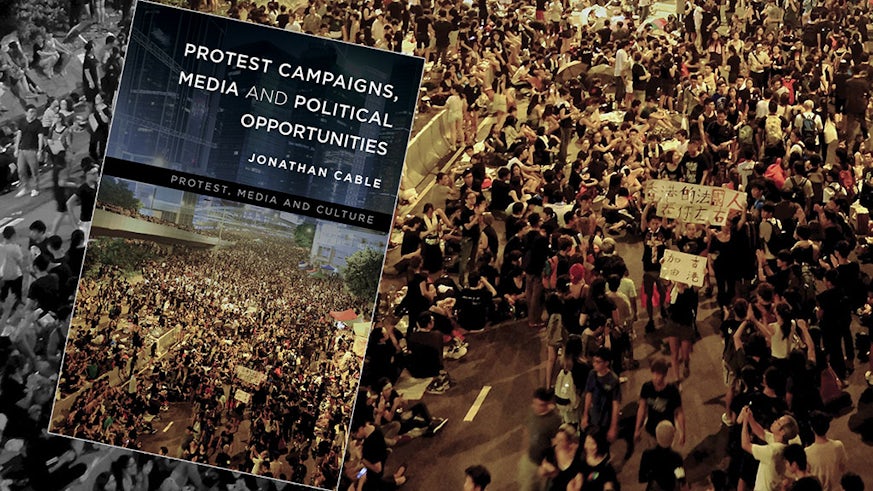Understanding the structure of social movements
24 October 2016

Dr Jonathan Cable’s new book Protest Campaigns, Media and Political Opportunities sets out to go beyond the headlines of social movements to discover their effectiveness and impact.
The book has been written at a time when media attention and activity of protest groups and social movements has rarely been higher.
Dr Cable, a Lecturer in the School of Journalism, Media and Cultural Studies, utilises a range of materials such as insider stories from activists, the authors own involvement, social media and government documents to identify the objectives and decision-making processes behind each group's protest tactics and how these choices impact on both media and political opportunities.
Dr Cable said, "We live in a time of political unrest and upheaval where contentious politics is fought over ferociously. In the last few years, just in the UK, we’ve had student demonstrations, anti-austerity protests, the Occupy movement, people mobilising against fracking and much more."
"Against this backdrop the book takes three different protest groups; a community campaign, environmental direct action activists, and a mass demonstration and provides an in-depth insight into each group’s campaign from the inception of their protest messages and actions, through media coverage, and into political discourse."
Protest Campaigns, Media and Political Opportunities is published by Rowman & Littlefield International Ltd.
Reviews
In an age of media saturation protest campaigns are media campaigns. Protest Campaigns, Media and Political Opportunities is required reading for anyone interested in understanding how the logic of media underwrites contemporary protest.
Clearly written and with well-chosen case studies, the book illuminates the complex relationships between protest, power and the press and should be required reading for campaigners and journalists alike.
Share this story
Commentary, debate and opinion from the School of Journalism, Media and Culture.

